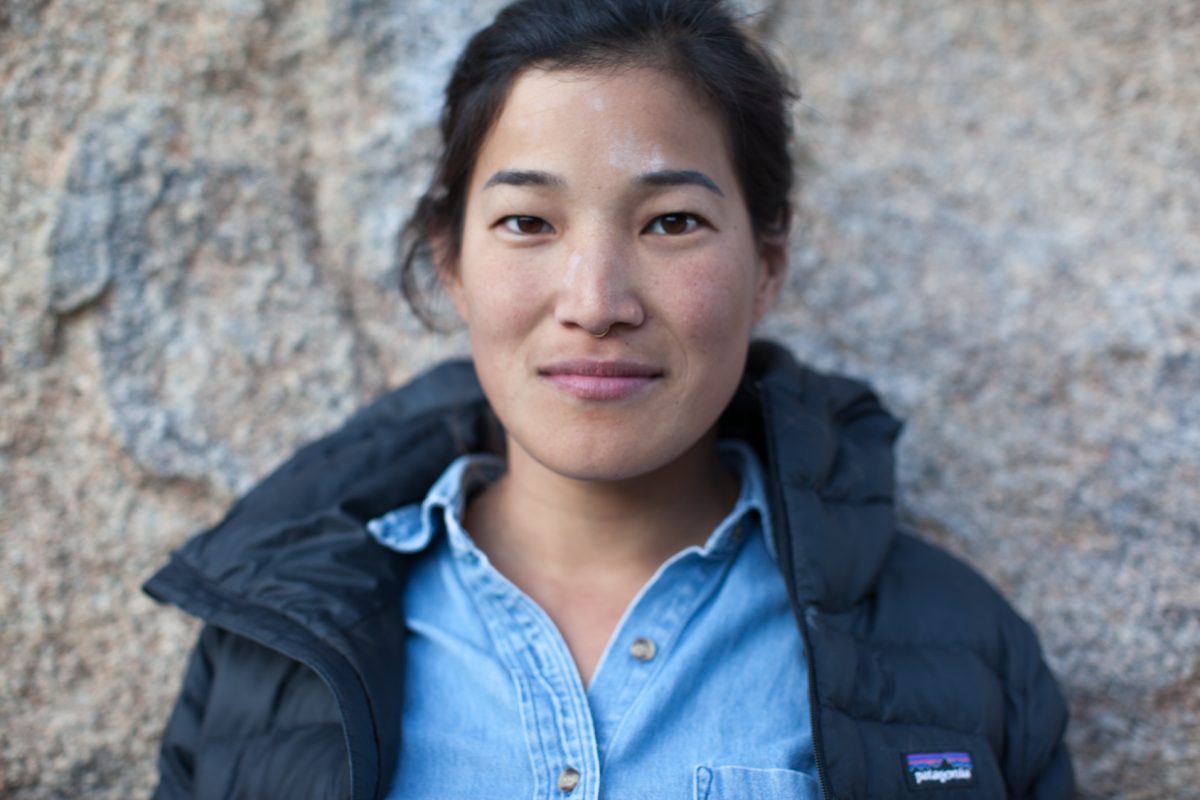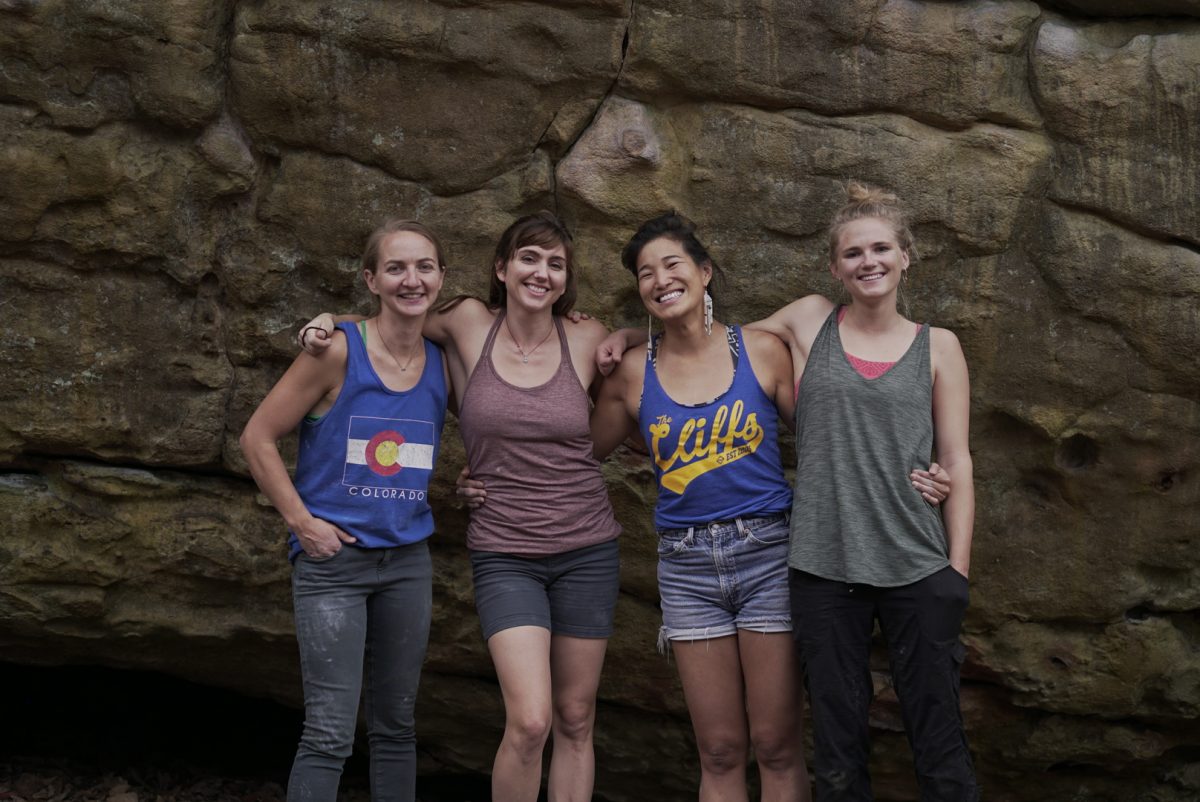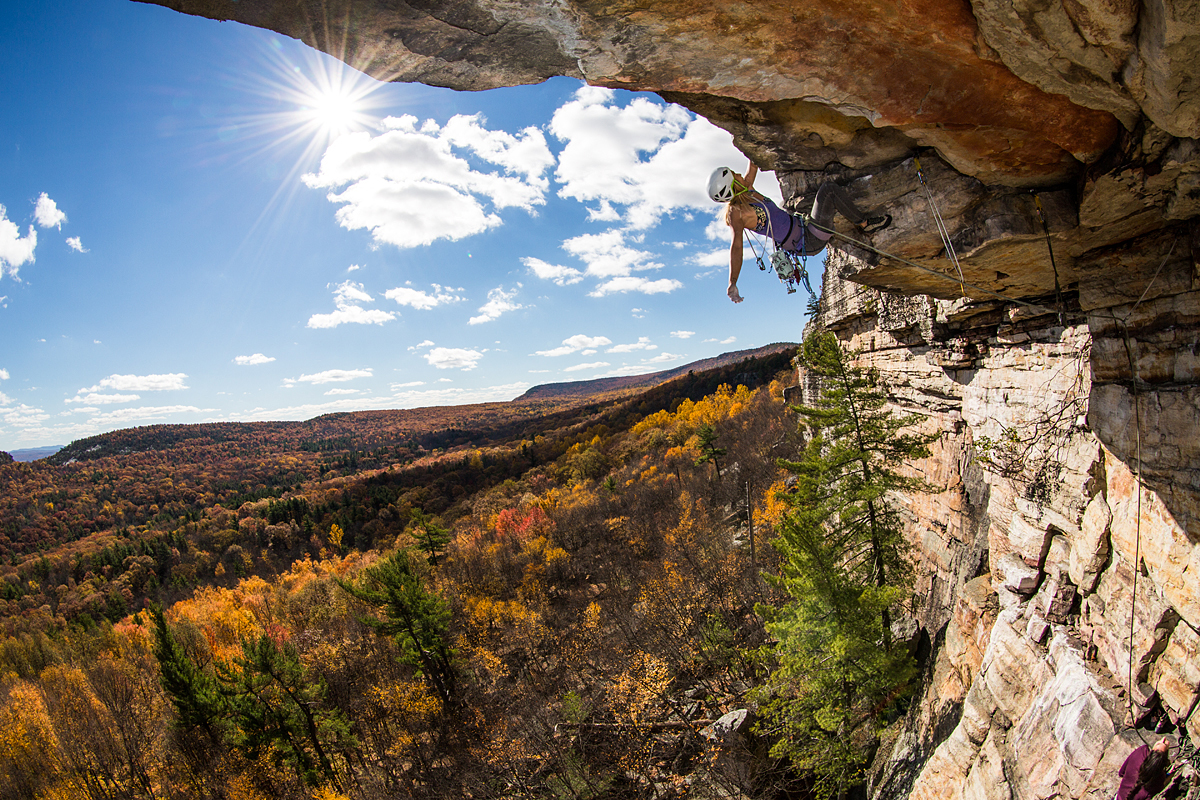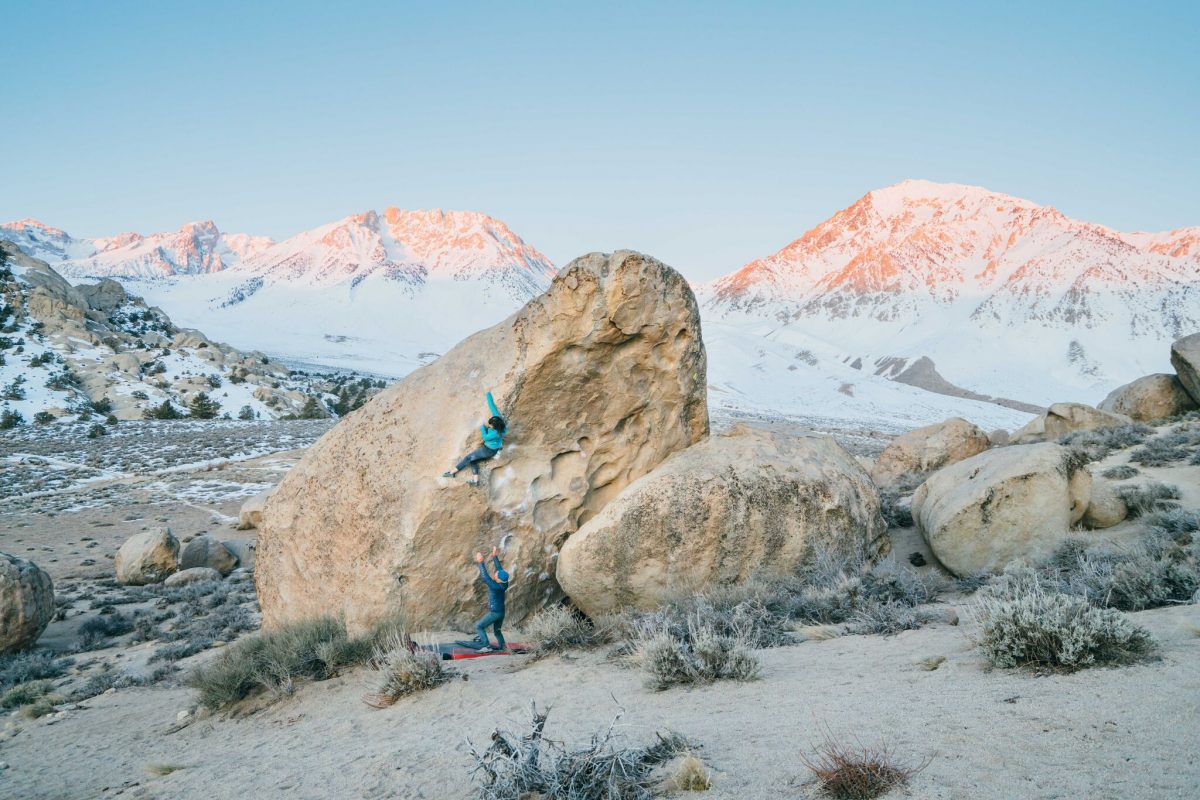
Until recently, Shelma Jun was primarily known in outdoor circles as the founder of Flash Foxy, a personal project that morphed into a women’s climbing initiative renowned for not only its supportive online community, but also its annual Women’s Climbing Festival. Earlier this year, her efforts landed the Brooklynite a spot in an Outside feature honoring forty women who embody the idea that “the future is female.” Jun’s also been featured on popular podcasts She Explores and Enormocast, and was the primary subject of Within Reach, a documentary short that explores among other things gender bias, inequity, discrimination, and harassment in climbing culture.
Jun still oversees all things Flash Foxy, but she’s also signed on for a new endeavor – co-founder of Never Not Collective, an all-women crew of storytellers that also features former Climbing Editor-in-Chief (and writer/photographer) Julie Ellison, photographer/editor/skier/climber Leslie Hittmeier, and climber/photographer/filmmaker Colette McInerney. The collective originated with Jun, whose creative work spans several disciplines: she co-hosted a show on a pirate radio station for a few years while living in San Francisco, worked in community-based development to bring art installations and related programming into New York City neighborhoods, and shot portraits for The Biking Public Project, a cycling advocacy group she helped co-found.
The common thread in everything she’s done, then and now? Believing in – and harnessing – the power of storytelling.
“There are all these awesome people whose stories just aren’t being highlighted by regular mainstream media,” says Jun. “I think those stories should be told – and I am not seeing them being told, so maybe I’ll just go and tell them myself.” With the idea of starting a production company, Jun reached out to McInerney, who was “quite hesitant at first.” Ellison, however, was more easily convinced. Jun floated the idea during a climbing trip last October, and it came at the right time for Ellison, who was looking to make a meaningful shift in her life. She suggested bringing on Hittmeier, and Jun was then able to convince McInerney, who didn’t want to pass up the opportunity.
We chatted with Shelma Jun about Never Not Collective, her own storytelling process, and her tips for other filmmakers – here’s what she had to say.

What was the impetus for launching Never Not Collective?
I think that there just aren’t that many women storytellers right now. I don’t by any means want to say that there aren’t any, because there definitely are some women who are kicking ass and telling some awesome stories and doing it in a really beautiful way when it comes to filmmaking and photography, but the percentages don’t reflect the percentages of our society, or even our community in the outdoors. I think that women have been becoming more and more present in the outdoors, but you aren’t really seeing that same percentage reflected in the industry, or in the media making.
It’s not that women telling stories is going to be a better story than what men are telling, but it’s going to be different – we’re going to have a different perspective, based on the challenges that we face, the things that we notice, and the social norms that we’ve been brought up with, to be completely straight. I think that it’ll only benefit our field by having more women telling these stories. I also wanted to created a space that can be used to create a community and network of women media makers, producers, filmmakers, animators, editors, sound producers, color correctors – we’re all kind of out there, and it would be really great to create a network or community to push each other up and to hold each up by providing opportunities for each other. The dream is that we get really, really busy – so busy that we can’t do all the work ourselves and that we can start to pull in all these other female media makers. So, not only supporting ourselves, but supporting women in all different aspects of filmmaking is a big goal of mine.
You raised over $79,000 on Kickstarter for your upcoming full-length film, Pretty Strong, which will feature five female climbers. Why was it important to focus on women in climbing for your debut feature?
It’s something that we’ve been pretty excited about for a while. As it says in the Kickstarter, it’s kind of been a dream project of Colette’s, and I think representation matters, and representation in media matters. There has been a strong lack of women being featured in climbing films. For us, it’s really a celebration of the strong women that have emerged within our climbing community who are inspiring young girls, women, men – kind of everybody – with their really high level climbing ability. I think this is a film celebrating that.
A negative criticism that we might get is ‘Oh, you’re excluding men,’ and I think it’s just a funny argument that celebrating one person means you’re excluding somebody else. A really great example that a friend brought up to me is that he’s a veteran, and it’s unlikely that if they decided to make a film celebrating veteran climbers, that they would receive pushback along the lines of, ‘I can’t believe you’re being so exclusive and only celebrating veteran climbers!’ But you definitely get that in terms of these other identity politics groups, these affinity groups, when it comes to women, to people of color, to queer folks – you always get this push back, right? So it’s a little bit against that, too – you can celebrate women and it is still for everybody. The film is for everybody. And I hope that lots of men also watch it and are really psyched to go climb hard.

What do you feel is the most important element of the storytelling process?
I think being authentic – being true to that person’s story. The last thing I ever want to do is to fabricate a story, to force a story that’s not there, because I think it’s going to be more compelling. I think that if you’re a good storyteller and you picked somebody because they have a good story, you don’t have to force it; you will be able to find something good.
I think that it’s really challenging, your relationship with the subject, because sometimes the things that are most compelling to the audience are the parts of you that you feel least comfortable sharing – the parts where you’re vulnerable, or showing weakness, or showing failure. I think that it causes a little bit of friction between being a storyteller and the subject, but beyond that, I never want a subject to look at something that I’ve made about them and be like, ‘I don’t recognize myself in this story.’
What are some of the biggest lessons you’ve learned as a storyteller?
I think to just be flexible and open. You always pick a subject because you have an idea about a story that you think is there, and [it’s important] to always just be prepared and okay if that story doesn’t work out, if it doesn’t come into fruition the way that you had originally envisioned it, because it’s really rare for that to actually happen. It’s always going go evolve and change the more you get to know somebody, unless it’s somebody you know super well, the deeper you dig during the process. You’re going to maybe come into a realization like, ‘I thought this was going to be the most important part, but it isn’t. I thought this was going to be the story, but it’s not. This didn’t seem important, but now it seems really important.’ Be open to being flexible for those changes to happen throughout the creative process.

Is there any specific advice you’d offer to aspiring filmmakers or photographers?
Start with what you know. I think it’s easy to think, ‘These are the kinds of stories I should be telling, this is the exciting stuff,’ but I think the hardest part in the beginning of filmmaking is lessening that gap between the story you want to tell and the story that’s on the screen. You have the story in mind and you want that to be represented through your finished product, and there’s this gap; you’re constantly working to lessen that gap so that they’re sitting almost on top of each other. It’s going to be less of a challenge if you’re working with something you’re really familiar with, whether it’s a sport, an activity, or a person.
What do you hope people take away from your work?
So many things! I hope people walk away feeling connected to it – feeling like it resonated with them, that it related to them in some way, that it wasn’t a waste of their time. I think there’s just so much content out there right now, and we spend so much time watching it, and I want to make good films, good stories that are worth people’s time. I think about what I want when I’m a content viewer, and I want to leave feeling like it was worth my time, that I was connected to it, that it was relevant to me, that it wasn’t something that I’ve seen a hundred times.
